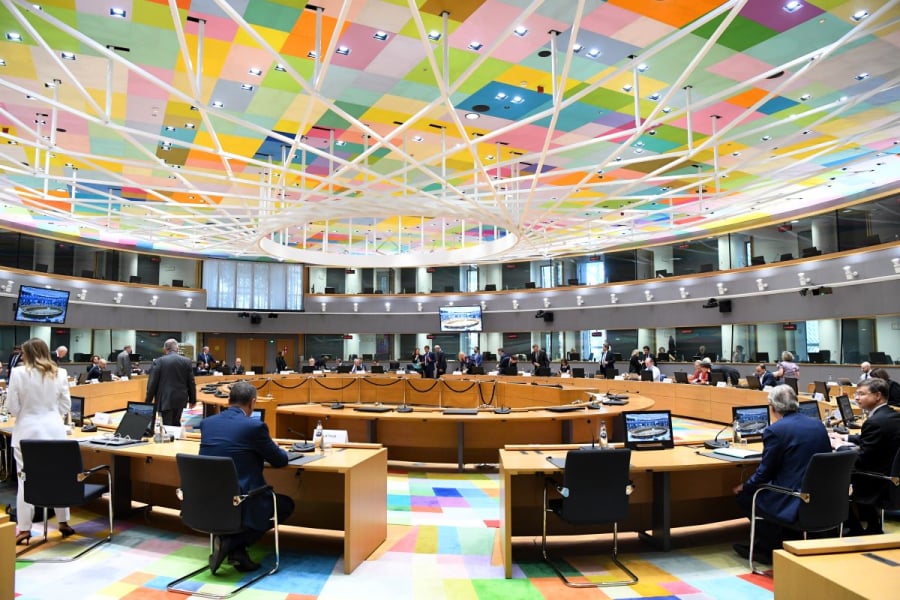
The Eurogroup cuts the “appetite” for increasing salaries and pensions and puts an end to benefits and “permits.” Now this policy will be adapted to the new financial rules, as agreed last December. Fiscal policy will also be coordinated with them for next year, as was discussed for the first time in the Eurogroup.
The Commissioner in charge of Economic Affairs, Mr. Paolo Gentiloni, stated on Monday (11/3) that with the new rules, the formulation of fiscal policy will be customized for each country, as stipulated in the new financial framework.
He stressed that heavily indebted countries must make greater efforts to reduce their debts and create financial reserves. However, his statement that regardless of the new framework, states' performance will be judged by the commission's new projections on aging populations, and thus insurance costs, made an impression.
The Executive Director of the European Stability Mechanism, Mr. Pierre Gramegna, stressed that fiscal policy must remain anti-inflationary. For this reason, all current support tools, especially energy support, must be withdrawn.
“Austerity” in 2024 and 2025
The anti-inflationary policy, which will continue in 2024 and 2025, has a key decisive criterion – the development of wages. In fact, the ECB, through ECB President Christine Lagarde, has made clear its position that the long-awaited cut in interest rates will begin when data is available on the “sustainability” of inflation at low levels. Levels.
It was particularly emphasized that in the first phase, the impact of this year's salary increases on the inflation path should be studied before final decisions are made. In wage increases, the Commission adds to the equation for 2025 and pension costs, given that successive crises have changed the coordinates of many insurance systems within the European Union.
What does it mean for Greece?
All of this means that Greece, which despite its best efforts still has the highest debt in the EU alongside Italy, will be among the group of countries that will have to try to reduce their debt.
The four-year program that will be agreed upon after the Commission until the fall, when the new fiscal compact on wages and pensions for the coming years comes into force, must be “prudent” and consistent with the anti-inflation policy and the pace that increases the competitiveness of the economy, otherwise it will have to to adjust its medium-term financial plan accordingly. The plan, which should be sent to Brussels by September, should be consistent with the slightly restrictive fiscal policy first discussed yesterday.
More positive for Greece is the decision by the Eurogroup to increase public investments, beyond the money each member state received from the recovery fund. Indeed, Mr. Gentiloni reiterated the finding of Mario Draghi's research on EU competitiveness, that in order to close the gap with China and the United States, member states must move forward with new investments worth €500 million.
The end of the extraordinary “Easter Gift 2024”.
In this context, K. Mitsotakis, with his statements, officially put an end to the unusual “Easter gift 2024” scenarios. The debate has been open since Christmas, with vulnerable groups of the population waiting to receive the allowance, which will give a little breathing room to the family budget.
As the Prime Minister announced, “We will not give the Easter bonus. We have a difficult budget ahead of us. We need to see if it will be delivered,” with recipients disappointed once again, after today's publication in News that the decision on the “gift” will close in April.
However, Kyriakos Mitsotakis left Opening the possibility of obtaining exceptional financial support by the end of the year.
“I could think there's an election coming up, so give something, but I'm not going to do that.” We will not give an Easter allowance. “If we have to do something, we will do something at the end of the year.”

“Avid problem solver. Extreme social media junkie. Beer buff. Coffee guru. Internet geek. Travel ninja.”







More Stories
“Recycling – Changing the water heater”: the possibility of paying the financing to the institution once or partially
Libya: US General Meets Haftar Amid Tensions Between Governments
New tax exemption package and incentives for business and corporate mergers..